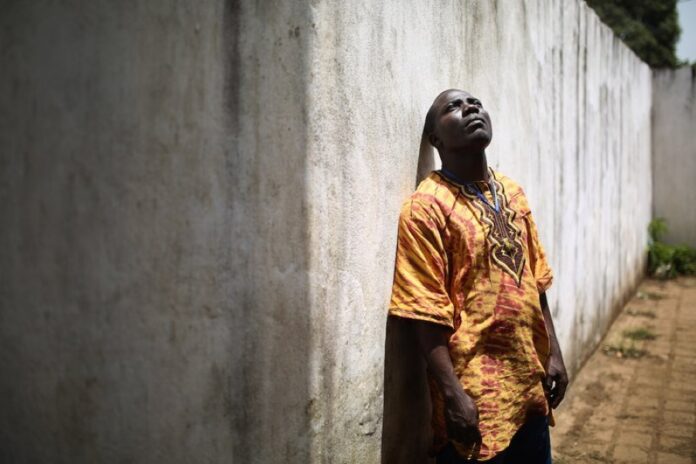A recent study by Oladele et al. (2024) titled “A Literature Review of Health and Mental Well-being Indicators and Its Assessment in Sub-Saharan Africa (2014-2022)” published in Journal of Research and Health shows that mental health and well-being assessments often rely on Western-developed or validated instruments.
“
Mental health and well-being assessments in Sub-Saharan Africa rely on Western tools, requiring cultural adaptation.– Oladele et al. 2024
The article offers a comprehensive analysis of existing research on health and mental well-being (MWB) indicators in Sub-Saharan Africa. Aiming to facilitate a holistic understanding of well-being in the region, the study explores the various factors influencing health and MWB. Utilizing the POWER framework and sourcing data from the Web of Science database along with supplementary Google-led searches, the review examines key literature on mental health and well-being. The study identifies critical MWB indicators, including the ability to realize one’s potential, manage everyday stress, work effectively, and engage meaningfully with one’s community. It highlights the increasing recognition of MWB as a multifaceted concept in Sub-Saharan Africa. However, the findings reveal that MWB assessments predominantly rely on instruments developed or validated in Western contexts. The authors emphasize the need for adaptive assessment tools tailored to the African cultural and social landscape, ensuring more accurate evaluations and improved well-being outcomes in the region.
How the Study was Conducted
The study utilized the POWER framework—Planning, Operationalizing, Writing, Embedding, and Reflecting—to systematically develop and assess the literature review. This progressive approach guided the lead author in conceptualizing and exploring mental health and well-being (MWB). The planning and operationalizing phases involved gathering relevant information through electronic databases, reference lists, direct internet searches, and grey literature. The Web of Science (WoS) database served as the primary source, supplemented by random Google-led searches, with a focus on MWB literature published between 2014 and 2022. The search yielded 22 studies from South Africa and 5 from Nigeria, spanning diverse disciplines such as health, environment, arts and humanities, agriculture, economics, nursing, psychology, and social sciences. To ensure the findings’ broad applicability, the collected literature was thoughtfully integrated into the review, avoiding dominance by any single source or perspective.
What the Authors Found
The study identified crucial mental health indicators, including the ability to realize potential, cope with normal stresses, work productively, and engage meaningfully with the community. These indicators are gaining attention in Sub-Saharan Africa. The review highlighted that mental health and well-being assessments often rely on Western-developed or validated instruments.
Why is this important?
Holistic Health Assessment: The study emphasizes the need for a comprehensive evaluation of health and mental well-being, considering both objective and subjective components. This holistic approach is crucial for understanding the full spectrum of well-being in the region.
Cultural Relevance: By highlighting the reliance on Western-developed assessment tools, the study underscores the necessity for culturally appropriate and context-specific assessments. This is vital for accurate evaluations and effective interventions tailored to the unique cultural and social contexts of Sub-Saharan Africa.
Policy and Intervention Development: The findings call for the development of adaptive health and mental well-being assessments. This can inform policymakers and healthcare providers in creating more effective and relevant intervention programs that address the specific needs of the population.
Transdisciplinary Approaches: The study advocates for transdisciplinary approaches to mental health and well-being, involving multiple public sectors and stakeholders. This collaborative effort is essential for addressing the complex and multifaceted nature of mental health issues in the region.
Improving Mental Health Services: The study highlights the gaps in mental health services and the need for comprehensive and coordinated responses. This can lead to better mental health care infrastructure and services, ultimately improving the overall well-being of the population.
What the Authors Recommended
- The authors emphasize developing adaptive health and mental well-being assessments tailored to the African context. This would ensure more accurate evaluations and culturally relevant interventions.
- The study recommends implementing intervention programs that are culturally suitable, widely accepted, and potentially effective in the specific context of rural, low-literacy, socioeconomically disadvantaged, and highly collectivistic communities in Sub-Saharan Africa.
- Adopt transdisciplinary approaches involving multiple public sectors and stakeholders to address the complex and multifaceted nature of mental health issues in the region.
- The authors advocate shifting focus from illness treatment to health promotion and illness prevention, emphasizing the importance of mental health as a state of well-being rather than merely the absence of illness.
- Furthermore, the study emphasizes ensuring comprehensive and coordinated responses to mental health, involving partnerships with various sectors such as health, education, employment, judicial, housing, and social services.
- In addition, conduct context-specific research to understand the unique factors affecting mental health and well-being in Sub-Saharan Africa, and develop appropriate assessment tools and interventions based on these findings.
In conclusion, the study highlights the pressing need for mental health and well-being assessments in Sub-Saharan Africa to move beyond Western-developed tools and be adapted to the unique cultural, social, and economic contexts of the region. By developing culturally relevant, context-specific assessment methods, policymakers and healthcare providers can more accurately evaluate mental health and well-being, leading to more effective interventions and improved outcomes. Furthermore, adopting a transdisciplinary approach that involves multiple sectors will be essential for addressing the complex nature of mental health issues in Sub-Saharan Africa. Ultimately, a shift towards health promotion, illness prevention, and a more holistic view of well-being will better serve the diverse populations of the region and support the development of a more sustainable and inclusive mental health care system.
















 The African Research (AR) Index is a comprehensive scholarly directory and database focused explicitly on journal publishers that publish and disseminate African research.
The African Research (AR) Index is a comprehensive scholarly directory and database focused explicitly on journal publishers that publish and disseminate African research.

